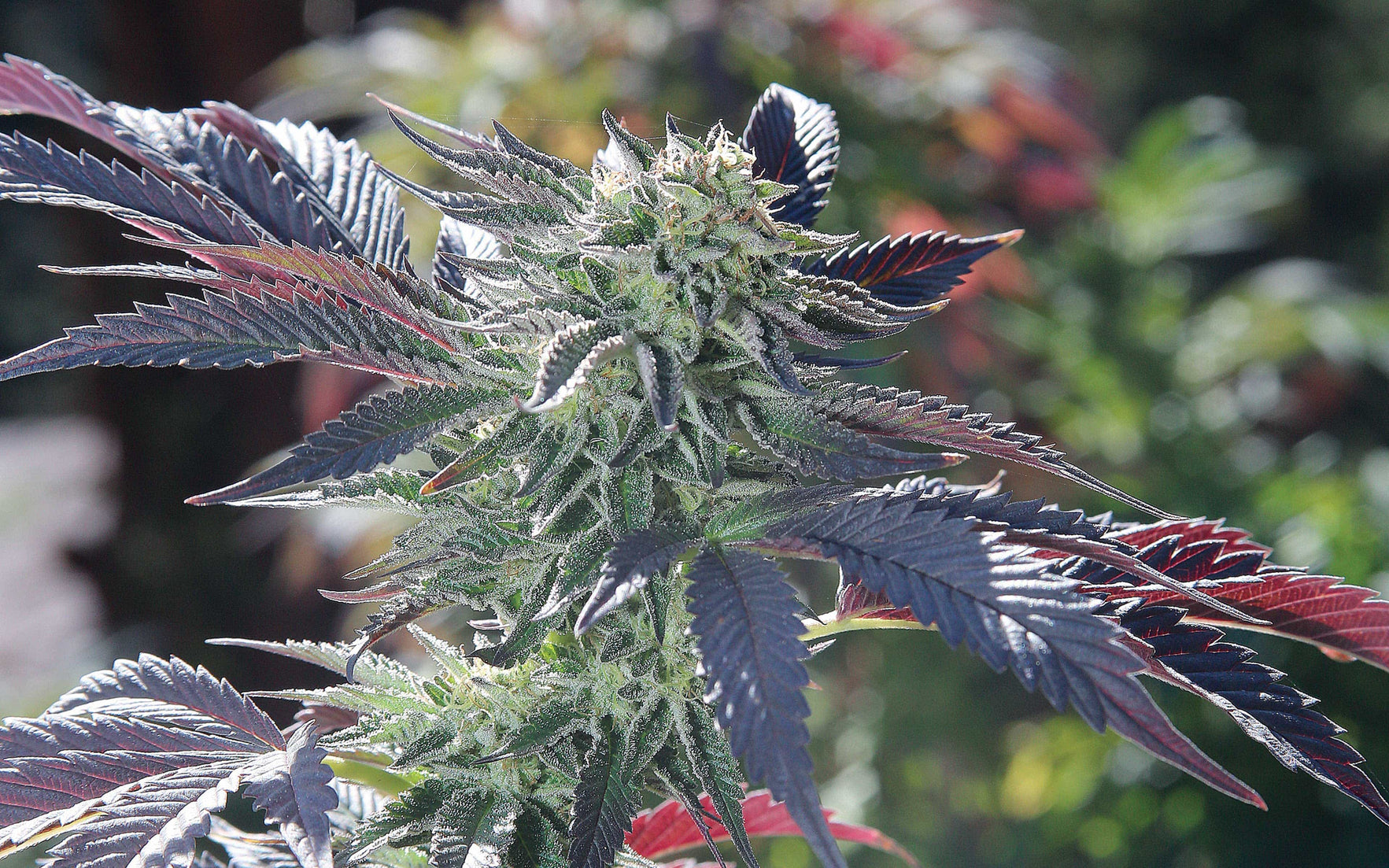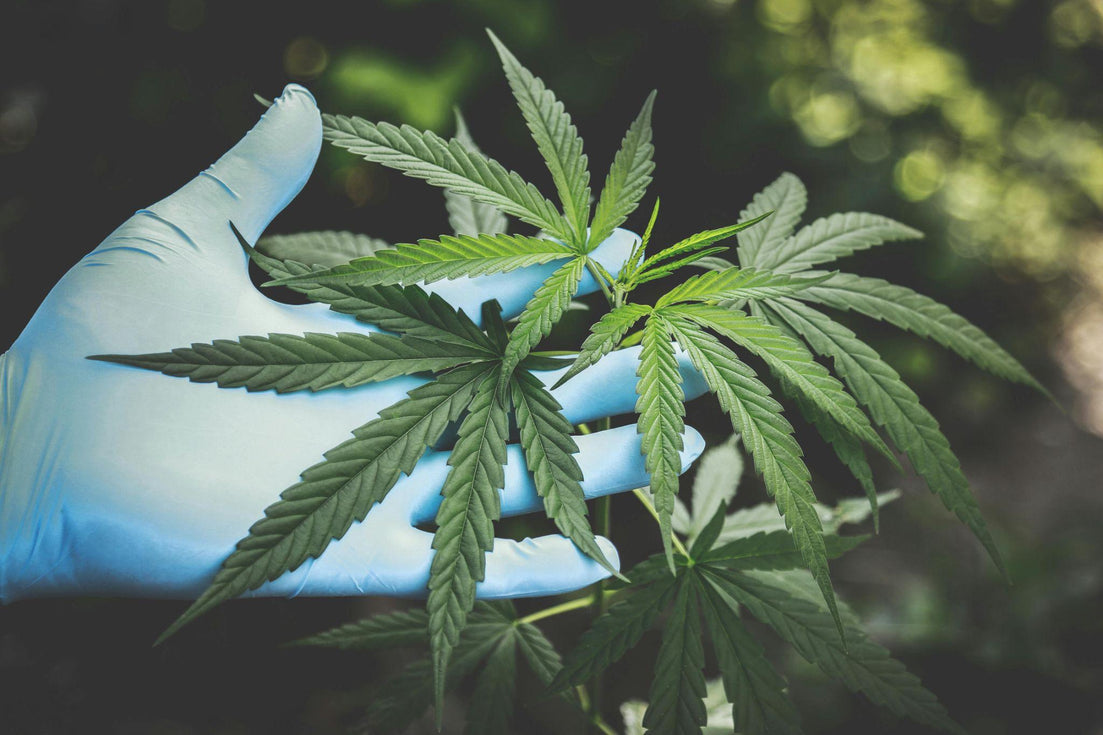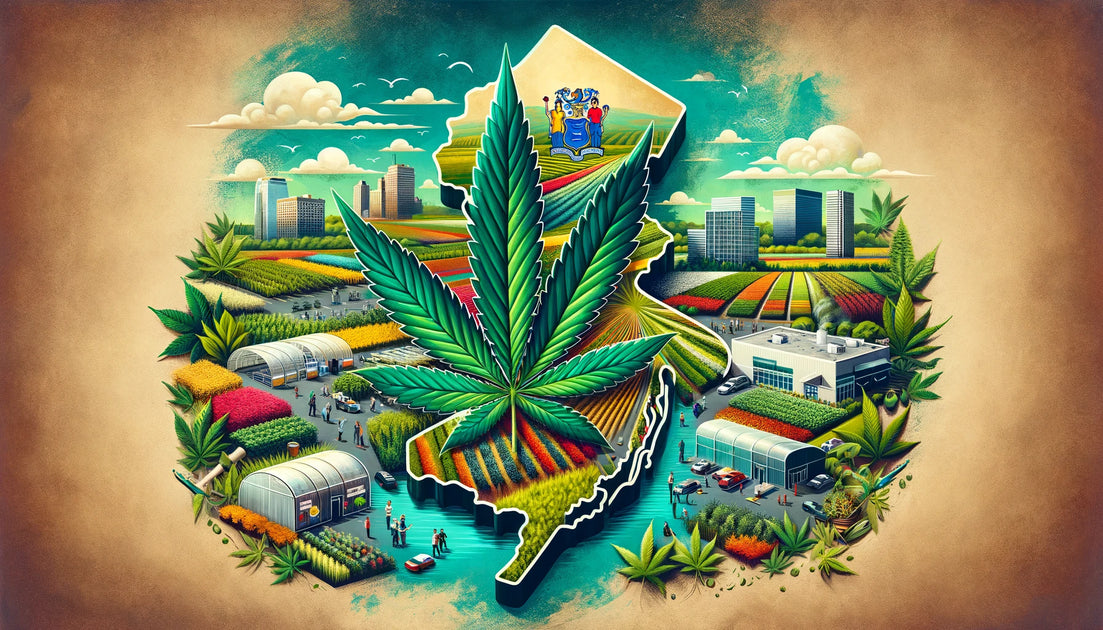Your cart is currently empty.

Dr. Raphael Mechoulam is the father of THC and marijuana as we know it today. As the first person to extract THC, Mechoulam's research has triggered a wave of new science that’s changing medical perceptions of marijuana and the stigma surrounding the drug around the world. To this day, Mechoulam remains one of the most influential marijuana research activists out there.
The beginning
In 2000, Dr. Raphael Mechoulam received the highest honor the state of Israel has to offer. At 70 years old, he was awarded the Israel Prize. This prize is only given to those who have gone above and beyond in their fields, whose contributions have advanced the Israeli state in some way. Surprisingly enough, he earned this honor for his lifelong work and achievement in cannabis research, an area of study that has been long overlooked.

MECHOULAM, ON THE RIGHT, PICTURED WITH @KYLE_TURLEY
Mechoulam is the person who first discovered THC in cannabis. He and another scientist, Dr. Yechiel Gaoni, first isolated the molecule in 1964. Since that time, the team led by the father of THC has not only isolated several more cannabinoids but has made some of the most important biochemical discoveries we've seen for several decades.
Though he has gone on to receive numerous awards for his discoveries, including the Rothschild Prize in 2012, Mechoulam’s beginnings weren't quite as extravagant. The chemist was born in 1930 to a Bulgarian Jewish family. Before WWII, his father was a doctor and the head of the Jewish hospital in Sofia. Once anti-Semitism began to take root in Bulgaria, Mechoulam and his family left, spending a few years traveling from village to village, where his father provided medical services to small communities in need.
At the height of the war, Mechoulam’s father was taken to a concentration camp. He was shortly released after said camp caught fire, and eventually, the family went back to Israel. In Israel, Mechoulam was able to study chemistry and eventually research pesticides, which he did during his time in the Israeli army. It was this research in biological chemistry that ultimately enabled him to begin his cannabis research.
Important discoveries
When the father of THC decided to research marijuana, he faced one major challenge: where do you get large quantities of cannabis for study? Mechoulam sourced his from the local police department. Though a seemingly unlikely source, he acquired the first 5 kilos of hashish by going to a local police department. Once procured, he placed all of that hash into a bag and took it by bus back to the lab.

PHOTO BY @CBDOILSUPPLIES_UK
He may have gotten several strange looks during an awkward bus ride, but it was ultimately through the hashish collected by the police that Mechoulam and his team were able to finally extract delta-9-tetrahydrocannabinol (THC) for the first time, a significant discovery in the scientific community.
The scientist’s research was part of a key group of findings that led to the unveiling of the endocannabinoid system (ECS). The CB1 receptor, which THC binds to, allowing you to feel the effects, was initially isolated by Dr. Allyn Howlett of John Hopkins University. Yet, it was Mechoulam’s team that finally found our body’s natural version (endocannabinoid) of THC, anandamide.
In The Scientist, Zach Klein's documentary on Mechoulam, Mechoulam explains: “It turned out that there is a whole system in the body which is involved around anandamide. And this in many respects parallels important systems that the body relies upon and this system is called now the endocannabinoid system.”
Turns out, the ECS is responsible for regulating everything from our moods, sleep, and appetite to cognitive thought, energy metabolism, and ability to sense pain. Researchers all around the globe are still struggling to understand just how the ECS works and what role it plays in a wide variety of diseases, even things like MS and Alzheimer's.

PHOTO COURTESY OF @KENESEXHIBITION
Why is studying cannabis so important? The compounds in the marijuana plant (cannabinoids) fit into a key regulatory system in the body, meaning that cannabis has incredible therapeutic potential in a wide variety of ailments. Mechoulam’s discovery of key components in that system as well as in the cannabis plant have made him a key figure in the search for healthier, more effective medicines.
“Here we have a group of compounds,” Mechoulam tells Klein, “an endogenous system of major importance, it is not being used as much as it should be in the clinic, it is of great promise in the clinic. Let’s try to push it forward.”
A lifetime activist
But, Mechoulam’s work didn’t immediately arise from an interest in the plant itself. He’s only ever used cannabis once in his life. That one time was shortly after he isolated marijuana’s only psychoactive compound, THC. He and his colleagues dosed slices cake made by Mechoulam’s wife, Dalia, with 10mg of pure THC and gave them to friends at a party.

PHOTO BY @LARSBOESKE
What results did this experiment prove? Not only was THC indeed psychoactive, but the compound had a distinctly different effect on each person. As the father of THC explains in The Scientist:
All of those who took THC were affected. But, surprisingly, they were affected differently. Some said: ‘well, we just feel kind of strange, in a different world, we want to sit back and enjoy. Another one said ‘nothing happens’, but he didn’t stop talking all the time. A third one said, ‘well, nothing’s happened’, but every 15-20 seconds he’ll burst out laughing. These effects are all well-known today. People are differently affected. In one case however, one of the participants got into an anxiety state. She felt, I believe, that her psychological guards are breaking down.
Why was Mechoulam so interested in cannabis research? In an interview with Vice, he explains what first drew him to this field of study:
A scientist has to pick an original subject, one that doesn’t have another 50 people working on it. The subject must also be substantial and with social impact. Around that time, I read plenty of articles in English, Russian, French, and German to try to discover some unexplored problem, until I realized the scarce chemical knowledge about the compounds in cannabis. I found it very surprising: While morphine had been isolated from opium and cocaine from the coca leaf, no one had studied the chemistry of the marijuana plant. It was very odd.
Mechoulam hasn’t been able to pull himself away since he first began working with cannabis research. He has now been in the field for over 50 years, and at his current age of 85, he’s still heavily involved in cannabis science activism. Mechoulam regularly does interviews, appears at international conferences for cannabinoid medicines, teaches courses at the Hebrew University in Jerusalem, and he is the Director of Global Research for Phytecs, a company which researches products targeting the ECS.

THIS ARTISTIC RENDERING OF MECHOULAM WAS SHARED BY @THORHYD
The true value of Raphael Mechoulam’s contributions to the medical world unfolds little by little as we continue to push for more cannabinoid research. The scientist’s discoveries were overlooked for a time thanks to the peak of the War on Drugs. But, it’s now clear that the discovery of THC and the ECS have made us profoundly more aware of the internal systems that allow us to function daily. Finally, after over 50 years of work, Mechoulam’s findings are receiving the attention they so deserve.



